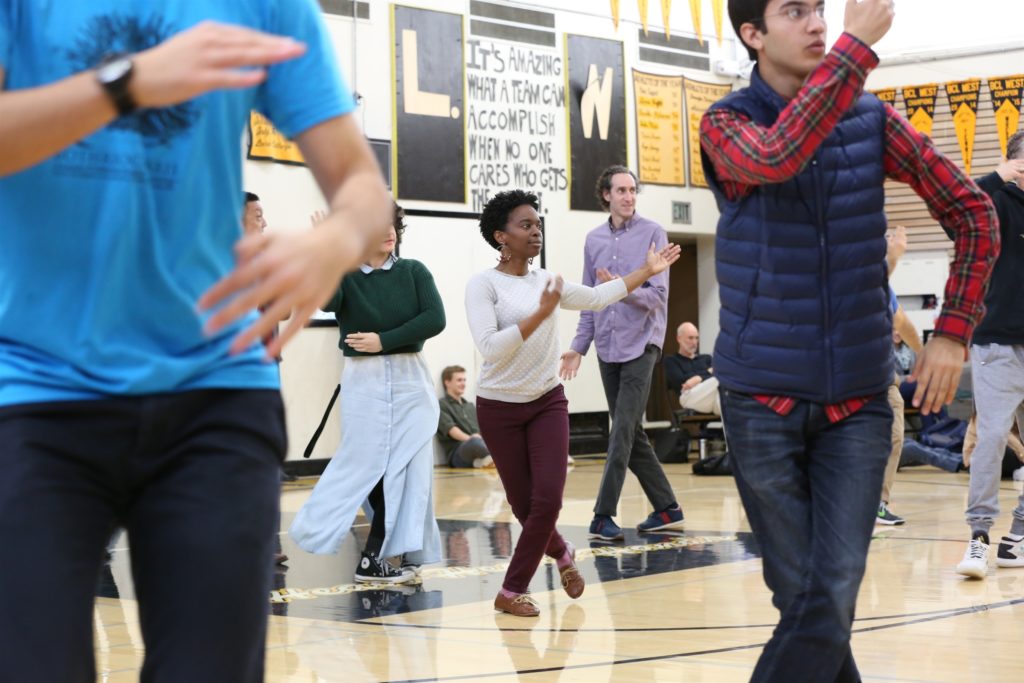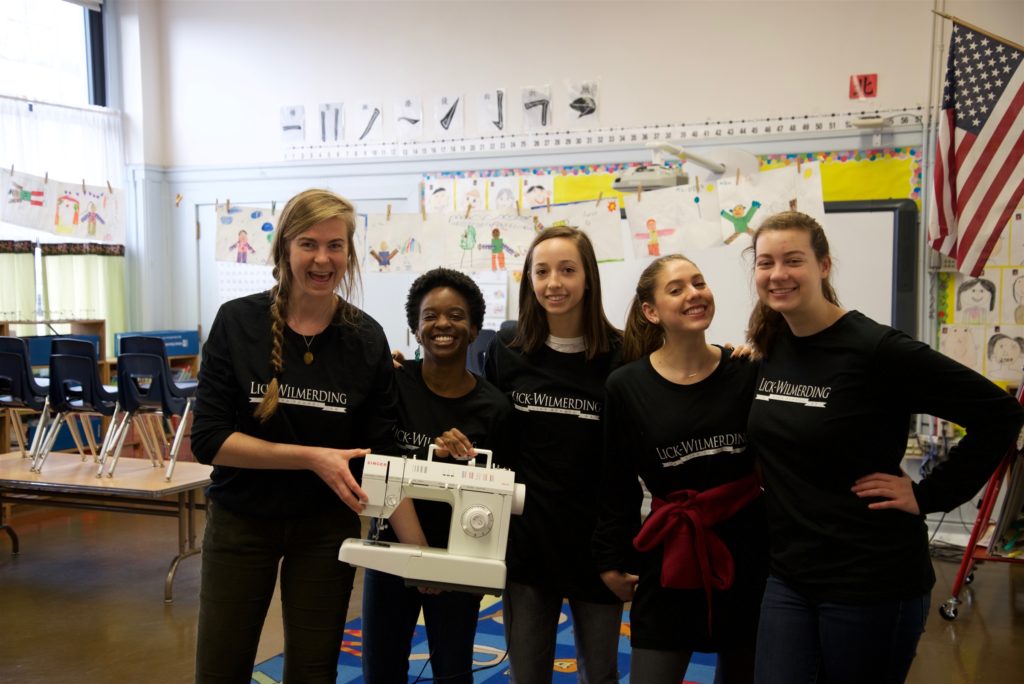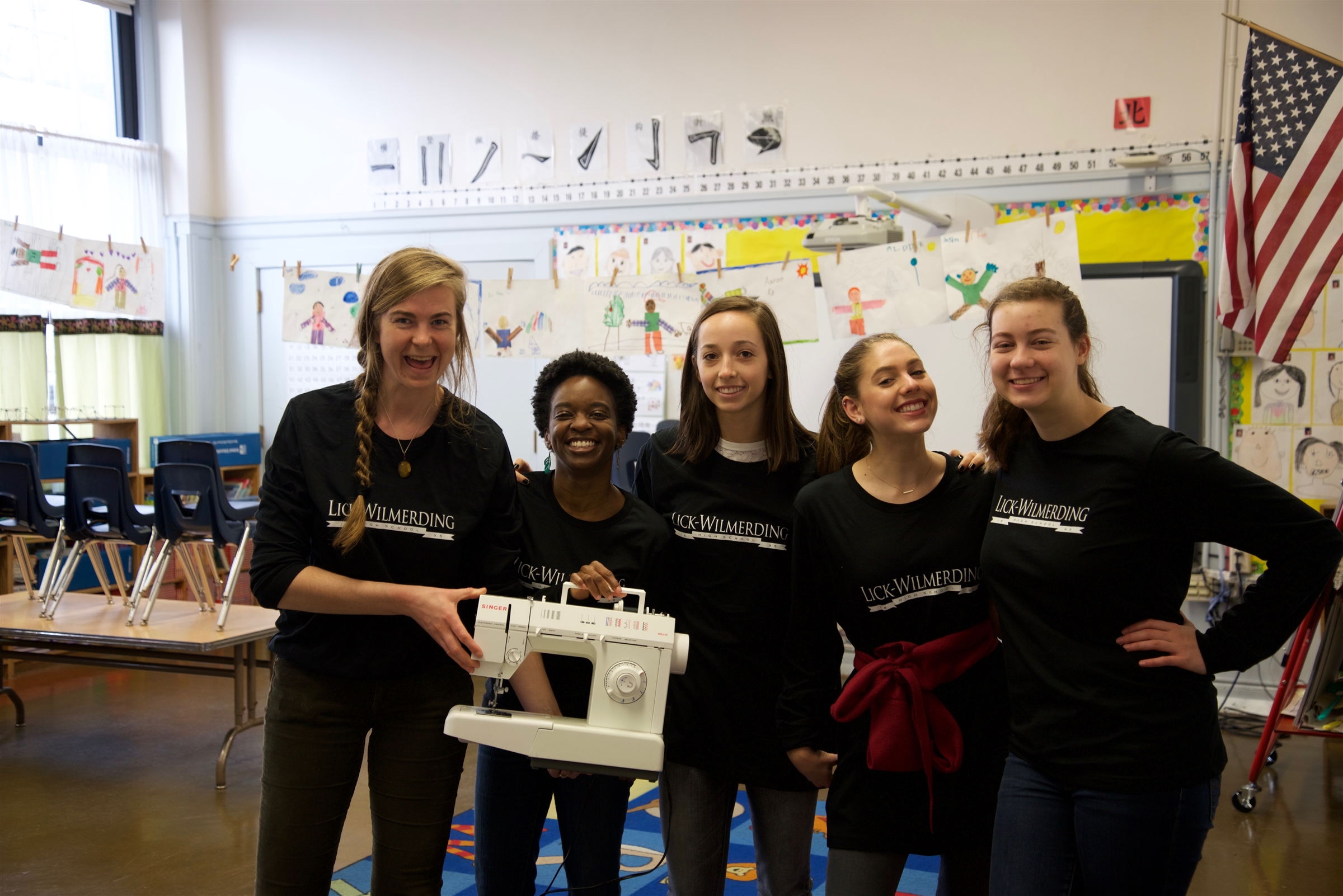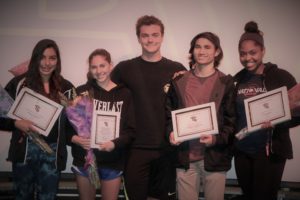Tamisha Williams is Lick-Wilmerding’s Dean of Adult Equity and Inclusion. Williams arrived last fall to realize the work of her new position. She has become a vital energy in the community – constantly engaged with the faculty, students and parents. Williams is generally out and about on the campus meeting with people, listening, observing, and counseling.
Her first year, before instituting major programs, Williams wanted to understand the climate of the school and get a feeling for its issues and needs. While focusing on learning about Lick-Wilmerding, she began to address concerns within the community.

photo by Eleanor Sananman
One of the concerns of the faculty members was the lack of space to have frank and meaningful discussions. Faculty members wanted opportunities to meet in small groups to discuss core identifiers, ethical dilemmas, social justice and the impacts of current events. Williams felt that at Lick students are pushed to lean into discomfort and talk about challenging or uncomfortable topics, but the adults who facilitate these conversations do not have similar opportunities. She sought to create regular sessions in which faculty could discuss tough issues openly. With Dr. Nikkia Willow-Mintz, Williams created a bimonthly forum which they call The Appetizer. They email an invitation to all faculty with a list of possible topics. Those who wish to attend choose the focus of the discussion. Topics have included core identifiers, controversial viral videos and overheard comments in the Lick community.
Williams hopes to organize other focus groups and workshops for students and faculty to recognize and explore historical and current issues.
For example, the Science Department voiced concerns about students suffering from stereotype threat in the classroom. Williams worked with the Science faculty to support students’ self-concept and confidence and to reduce students’ risk of conforming to stereotypes about their social groups. Members of other departments have requested Williams to work with them next year.

photo by Eleanor Sananman
In her efforts to bring together the many strands of the Lick community, Williams has worked to make all parents feel more comfortable in the Parents’ Association. She attends the PA’s monthly meetings and has worked specifically on accessibility to events, including meetings held off campus.
In addition she has worked with affinity groups, such as BSU, on their networking projects. Next year, she will work as well as a network coordinator with families and students of Latinos Unidos. And she plans to work with neurodivergent students and families.
In the coming years, Williams’ main goal for the community is to bring about those discussions often shied away from. She wants to encourage people to gain news perspectives and to step outside their comfort zone. Williams believes comfort and safety are different things. It’s okay, even important, to be uncomfortable in a safe environment. She tries to construct the safe environment for self-discovery and growth.
Besides working to better the Lick community, Williams also strives to continue making an impact in school communities everywhere to create a more inclusive learning environment for all students. At the end of April 2017 Williams attended a conference hosted by the Wilderness Institute of Leadership Development (WILD) for educational leaders where she led two workshops — one on focusing on the most vulnerable community members and another on why it’s important to discuss race. Williams states, “I believe that if you can identify what community members are most vulnerable and make it possible for them to join all programs then you are actually helping everyone because this means that everyone has more access to success!” Williams also believed her workshop on race was vital because “If adults aren’t talking about race but the community and students are impacted by race then they aren’t talking about a topic that impacts people. By not talking about it you make the situation worst. You can’t fix all the racial problems, but by having these discussions you are creating spaces for people to be comfortable.”
Co-written with Bonnie Wong ’17







